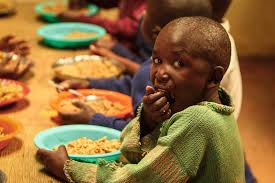- Admin
- Jul 12, 2025
- 370
- 02
161 Million Nigerians Face Hunger: Government Scrambles to Avert Full-Blown Nutrition Crisis
161 Million Nigerians Face Hunger: Government Scrambles to Avert Full-Blown Nutrition Crisis
In a startling revelation that underscores the deepening hardship in the country, the Federal Government has disclosed that nearly 161 million Nigerians—over 70% of the population—are now food insecure.
Only 2 out of every 10 Nigerians can be certain of their next meal.
This grim statistic was revealed on Friday in Abuja by Alhaji Nuhu Kilishi, Director of the Nutrition and Food Safety Department at the Federal Ministry of Agriculture and Food Security, during a high-level stakeholder meeting on Nigeria’s Food and Nutrition Security Crisis Preparedness Plan (FNSCPP).
“Food insecurity has soared from 35% in 2014 to 74% today,” Kilishi lamented.
The drivers of this crisis are clear: banditry, kidnapping, widespread insecurity, inflation, and skyrocketing food prices. These factors have forced farmers off their land, shrunk harvest sizes, and made basic nutrition unaffordable for millions of households.
But this is not just about hunger. It's a ticking nutrition time bomb.
“Over 40% of Nigerian households can’t afford healthy meals,” revealed Mrs. Ladidi Bako-Aiyegbusi, Director of Nutrition at the Ministry of Health. “This lack of access is fuelling Nigeria’s high maternal and child mortality rates.”
In response, the government is intensifying efforts to prevent a nationwide nutrition meltdown. As part of a renewed national strategy, Nigeria is rolling out a new preparedness plan linked to the World Bank-funded Accelerating Nutrition Results in Nigeria (ANRiN) project.
Solutions in Motion, But Time Is Running Out
Among the strategies:
Distribution of seeds and farm inputs for homestead gardening across all 774 LGAs.
Implementation in 21 states with World Bank support, while 15 states will be federally funded.
Scaling up preventive nutrition systems instead of waiting for emergency malnutrition spikes.
Dr. Ritgak Tilley-Gyado, a Senior Health Specialist at the World Bank, emphasized the urgency of proactive measures.
By Haruna Yakubu Haruna
About The Author
Subscribe to our Newsletter
Subscribe to our newsletter to get latest news, popular news and exclusive updates.
Most Read
Poll
-
Is raining season better than dry season

















